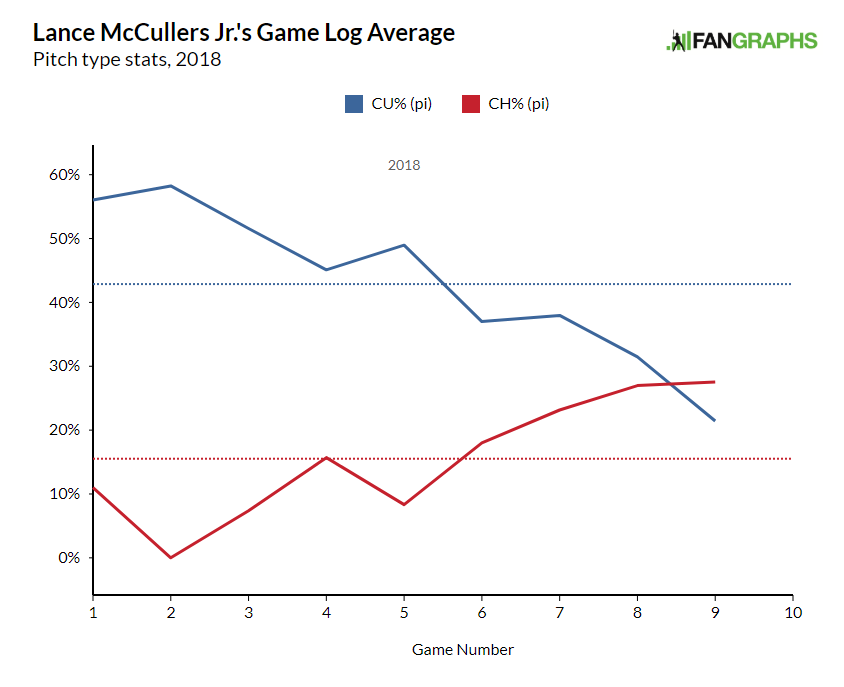When Lance McCullers Stops McCullersing
This is Jake Mailhot’s third post as part of his May Residency at FanGraphs. A lifelong Mariners fan, Jake now lives in Bellingham, Washington, just a little too far away from Seattle to make it to games regularly, which is sometimes for the best. He is a staff editor at Mariners blog Lookout Landing. He can be found on Twitter at @jakemailhot.
Earlier this year, Jeff Sullivan wrote a pair of articles, each about a pitcher who appeared to be McCullersing. That term, of course, is a reference to Lance McCullersJr., who in 2016 began throwing his excellent curveball more often than his fastball. He’s led all of baseball in curveball usage since then. He wound up throwing his curveball an astonishing 75% of the time in Game Seven of the ALCS last postseason. That appearance was peak McCullersing.
He started off this year throwing his curveball around the same amount as last year, 48% of the time. But when the calendar flipped to May, something changed. Just look at this graph of his secondary pitch usage in 2018.

That’s… interesting. In his start last night (not included here), McCullers threw his curveball around 40% of the time. That’s pretty normal for him. But it’s been less normal for him of late. In his start against the Angels last Monday, McCullers actually threw more changeups than curveballs, the latter pitch representing just 21.4% of his total count for the night. The last time his curveball usage fell below 30% was all the way back on August 3, 2015, during his rookie year.
